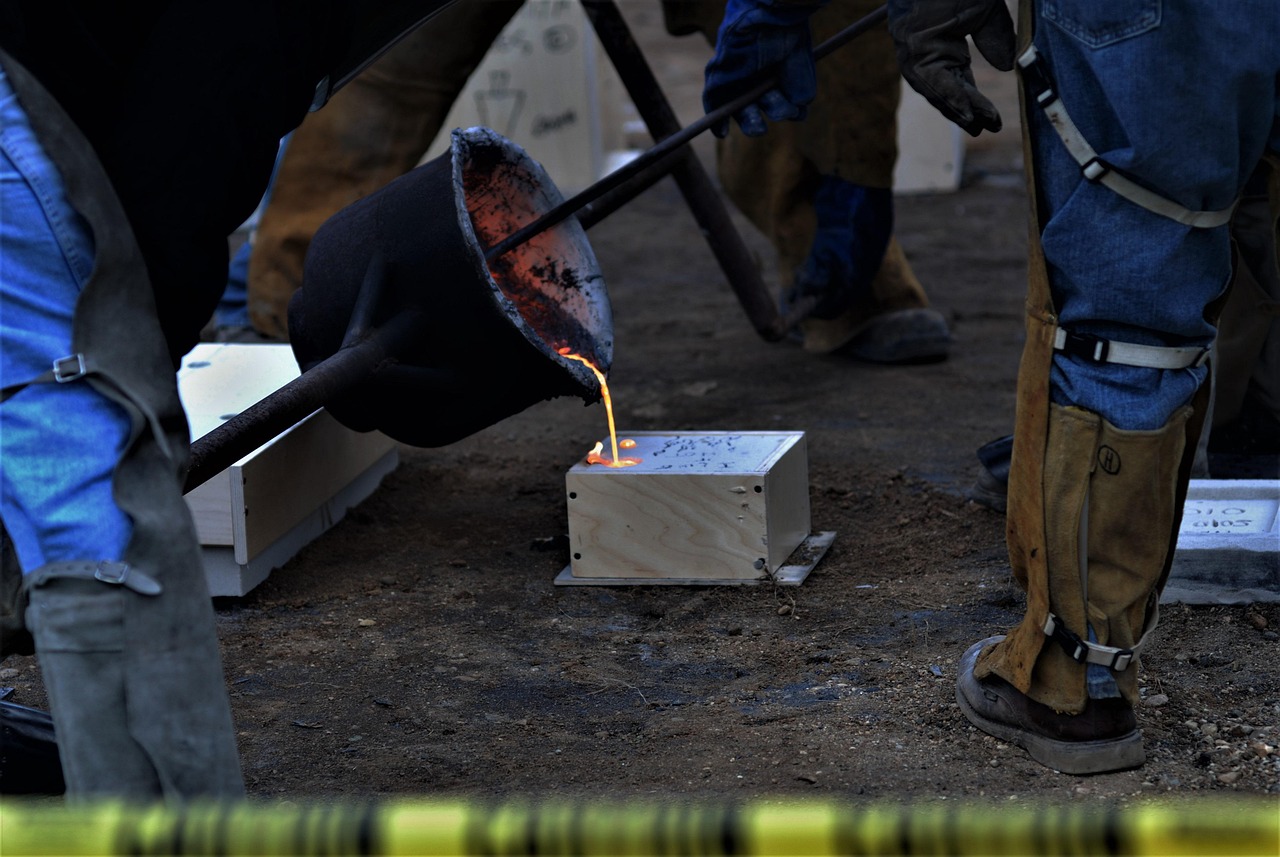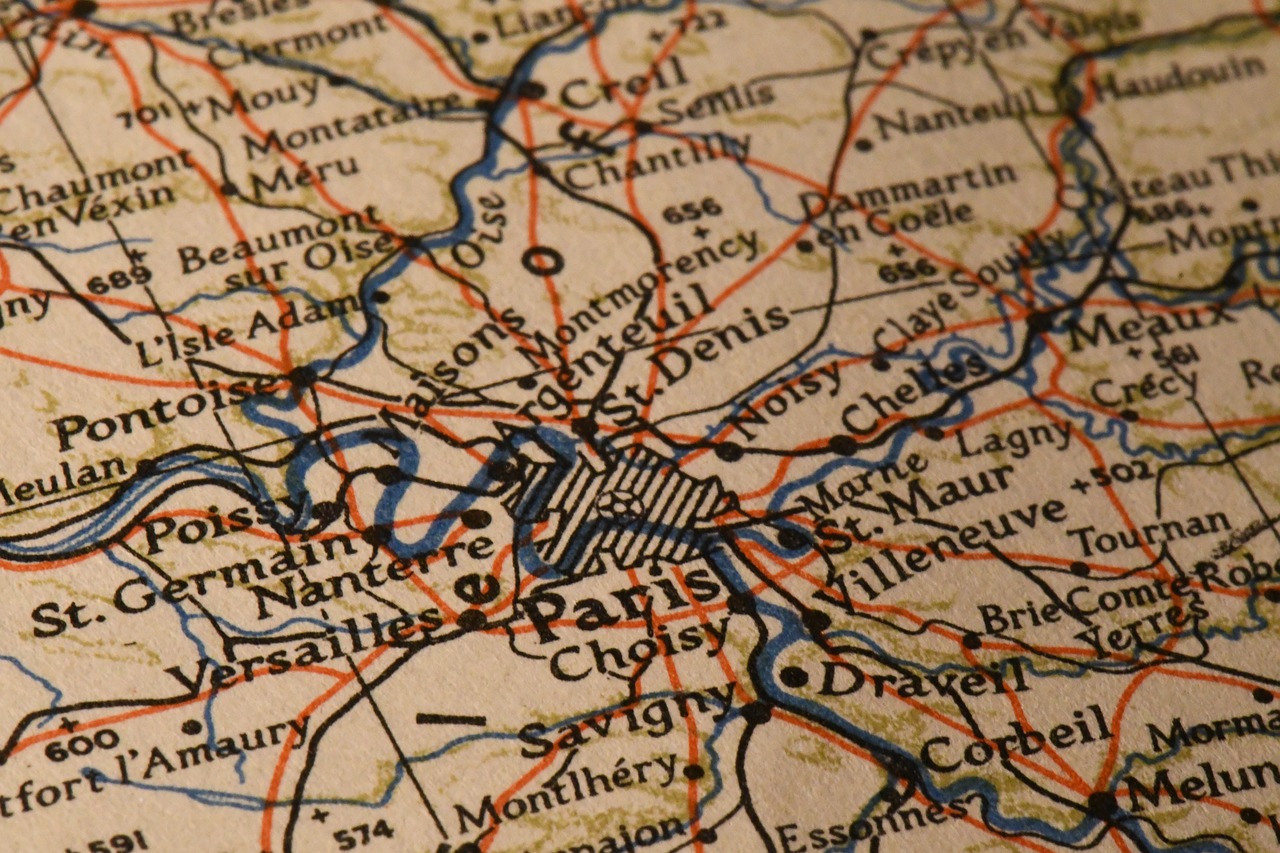A Comprehensive Guide to Pokémon: Understanding the Fascinating World of Pokémon Creatures
This article delves into the captivating universe of Pokémon, exploring their types, abilities, and strategies, while providing insights into their roles in gaming culture and competitive play.
What are Pokémon?
Pokémon are fictional creatures that trainers capture and train for battles. Each Pokémon has unique abilities, types, and evolutions, making them integral to the Pokémon franchise’s gameplay and lore.
The Different Types of Pokémon
- Water
- Fire
- Grass
- Electric
- Psychic
- Rock
Each type has strengths and weaknesses against others, influencing battle strategies and team compositions.
Evolution: The Transformation of Pokémon
Evolution is a key feature in Pokémon, allowing certain species to transform into stronger forms. This process can occur through leveling up, using special items, or trading with other players.
Abilities and Moves: The Skills of Pokémon
Each Pokémon possesses unique abilities that can affect battles. Moves are the attacks Pokémon use, and they can vary in type, power, and effects, adding depth to combat strategies.
The Role of Pokémon in Competitive Gaming
In competitive gaming, Pokémon battles require strategic planning and knowledge of type matchups. Players often participate in tournaments, showcasing their skills and team compositions against others.
Legendary and Mythical Pokémon: The Rarest Creatures
Legendary and Mythical Pokémon are unique and powerful creatures often central to the game’s lore. They are typically harder to catch and possess exceptional abilities compared to standard Pokémon.
The Importance of Pokémon Training
Training Pokémon is essential for improving their stats and skills. This includes battling, using items, and participating in various activities to enhance their performance in battles.
Pokémon Regions: A Diverse World to Explore
The Pokémon universe features various regions, each with its own unique Pokémon, lore, and challenges. Exploring these regions is a vital part of the Pokémon journey for trainers.
The Impact of Pokémon on Gaming Culture
Since its inception, Pokémon has significantly influenced gaming culture, inspiring merchandise, animated series, movies, and a vibrant community of fans and players worldwide.
Strategies for Building a Balanced Team
Creating a balanced Pokémon team involves selecting a variety of types and abilities to cover weaknesses and enhance overall effectiveness in battles against diverse opponents.
Pokémon Trading and Community Engagement
Trading Pokémon is a fundamental aspect of the franchise, promoting community interaction. It allows players to complete their Pokédex and obtain Pokémon that may be unavailable in their game version.
The Future of Pokémon: Trends and Innovations
The Pokémon franchise continues to evolve, with new games, mechanics, and technologies being introduced. Keeping up with these trends is essential for fans and players to stay engaged in the community.
A Comprehensive Guide to Pokémon: Understanding the Fascinating World of Pokémon Creatures
This article delves into the captivating universe of Pokémon, exploring their types, abilities, and strategies, while providing insights into their roles in gaming culture and competitive play.
What are Pokémon?
Pokémon are fictional creatures that trainers capture and train for battles. Each Pokémon has unique abilities, types, and evolutions, making them integral to the Pokémon franchise’s gameplay and lore.
The Different Types of Pokémon
Pokémon are categorized into various types, such as Water, Fire, Grass, Electric, and more. Each type has strengths and weaknesses against others, influencing battle strategies and team compositions.
Evolution: The Transformation of Pokémon
Evolution is a key feature in Pokémon, allowing certain species to transform into stronger forms. This process can occur through leveling up, using special items, or trading with other players.
Abilities and Moves: The Skills of Pokémon
Each Pokémon possesses unique abilities that can affect battles. Moves are the attacks Pokémon use, and they can vary in type, power, and effects, adding depth to combat strategies.
The Role of Pokémon in Competitive Gaming
In competitive gaming, Pokémon battles require strategic planning and knowledge of type matchups. Players often participate in tournaments, showcasing their skills and team compositions against others.
Legendary and Mythical Pokémon: The Rarest Creatures
Legendary and Mythical Pokémon are unique and powerful creatures often central to the game’s lore. They are typically harder to catch and possess exceptional abilities compared to standard Pokémon.
The Importance of Pokémon Training
Training Pokémon is essential for improving their stats and skills. This includes battling, using items, and participating in various activities to enhance their performance in battles.
Pokémon Regions: A Diverse World to Explore
The Pokémon universe features various regions, each with its own unique Pokémon, lore, and challenges. Exploring these regions is a vital part of the Pokémon journey for trainers.
The Impact of Pokémon on Gaming Culture
Since its inception, Pokémon has significantly influenced gaming culture, inspiring merchandise, animated series, movies, and a vibrant community of fans and players worldwide.
Strategies for Building a Balanced Team
Creating a balanced Pokémon team involves selecting a variety of types and abilities to cover weaknesses and enhance overall effectiveness in battles against diverse opponents.
Pokémon Trading and Community Engagement
Trading Pokémon is a fundamental aspect of the franchise, promoting community interaction. It allows players to complete their Pokédex and obtain Pokémon that may be unavailable in their game version.
The Future of Pokémon: Trends and Innovations
The Pokémon franchise continues to evolve, with new games, mechanics, and technologies being introduced. Keeping up with these trends is essential for fans and players to stay engaged in the community.
## What are Pokémon?
A Comprehensive Guide to Pokémon: Understanding the Fascinating World of Pokémon Creatures
This article delves into the captivating universe of Pokémon, exploring their types, abilities, and strategies, while providing insights into their roles in gaming culture and competitive play.
What are Pokémon?
Pokémon are fictional creatures that trainers capture and train for battles. Each Pokémon has unique abilities, types, and evolutions, making them integral to the Pokémon franchise’s gameplay and lore.
The Different Types of Pokémon
- Water
- Fire
- Grass
- Electric
- Psychic
- Rock
Evolution: The Transformation of Pokémon
Evolution is a key feature in Pokémon, allowing certain species to transform into stronger forms. This process can occur through leveling up, using special items, or trading with other players.
Abilities and Moves: The Skills of Pokémon
Each Pokémon possesses unique abilities that can affect battles. Moves are the attacks Pokémon use, and they can vary in type, power, and effects, adding depth to combat strategies.
The Role of Pokémon in Competitive Gaming
In competitive gaming, Pokémon battles require strategic planning and knowledge of type matchups. Players often participate in tournaments, showcasing their skills and team compositions against others.
Legendary and Mythical Pokémon: The Rarest Creatures
Legendary and Mythical Pokémon are unique and powerful creatures often central to the game’s lore. They are typically harder to catch and possess exceptional abilities compared to standard Pokémon.
The Importance of Pokémon Training
Training Pokémon is essential for improving their stats and skills. This includes battling, using items, and participating in various activities to enhance their performance in battles.
Pokémon Regions: A Diverse World to Explore
The Pokémon universe features various regions, each with its own unique Pokémon, lore, and challenges. Exploring these regions is a vital part of the Pokémon journey for trainers.
The Impact of Pokémon on Gaming Culture
Since its inception, Pokémon has significantly influenced gaming culture, inspiring merchandise, animated series, movies, and a vibrant community of fans and players worldwide.
Strategies for Building a Balanced Team
Creating a balanced Pokémon team involves selecting a variety of types and abilities to cover weaknesses and enhance overall effectiveness in battles against diverse opponents.
Pokémon Trading and Community Engagement
Trading Pokémon is a fundamental aspect of the franchise, promoting community interaction. It allows players to complete their Pokédex and obtain Pokémon that may be unavailable in their game version.
The Future of Pokémon: Trends and Innovations
The Pokémon franchise continues to evolve, with new games, mechanics, and technologies being introduced. Keeping up with these trends is essential for fans and players to stay engaged in the community.
A Comprehensive Guide to Pokémon: Understanding the Fascinating World of Pokémon Creatures
This article delves into the captivating universe of Pokémon, exploring their types, abilities, and strategies, while providing insights into their roles in gaming culture and competitive play.
What are Pokémon?
Pokémon are fictional creatures that trainers capture and train for battles. Each Pokémon has unique abilities, types, and evolutions, making them integral to the Pokémon franchise’s gameplay and lore. The bond between trainers and Pokémon is a central theme, emphasizing friendship and teamwork.
The Different Types of Pokémon
Pokémon are categorized into various types, such as Water, Fire, Grass, Electric, and more. Each type has strengths and weaknesses against others, influencing battle strategies and team compositions. Understanding these dynamics is crucial for any aspiring Pokémon trainer.
Evolution: The Transformation of Pokémon
Evolution is a key feature in Pokémon, allowing certain species to transform into stronger forms. This process can occur through leveling up, using special items, or trading with other players. Evolution not only enhances a Pokémon’s stats but also changes their appearance and abilities.
Abilities and Moves: The Skills of Pokémon
Each Pokémon possesses unique abilities that can affect battles. Moves are the attacks Pokémon use, and they can vary in type, power, and effects, adding depth to combat strategies. Trainers must choose moves wisely to maximize their Pokémon’s potential.
The Role of Pokémon in Competitive Gaming
In competitive gaming, Pokémon battles require strategic planning and knowledge of type matchups. Players often participate in tournaments, showcasing their skills and team compositions against others. Mastering the competitive scene can lead to exciting rewards and recognition.
Legendary and Mythical Pokémon: The Rarest Creatures
Legendary and Mythical Pokémon are unique and powerful creatures often central to the game’s lore. They are typically harder to catch and possess exceptional abilities compared to standard Pokémon, making them highly sought after by trainers.
The Importance of Pokémon Training
Training Pokémon is essential for improving their stats and skills. This includes battling, using items, and participating in various activities to enhance their performance in battles. A well-trained Pokémon can make a significant difference in competitive play.
Pokémon Regions: A Diverse World to Explore
The Pokémon universe features various regions, each with its own unique Pokémon, lore, and challenges. Exploring these regions is a vital part of the Pokémon journey for trainers, offering new adventures and discoveries.
The Impact of Pokémon on Gaming Culture
Since its inception, Pokémon has significantly influenced gaming culture, inspiring merchandise, animated series, movies, and a vibrant community of fans and players worldwide. Its impact continues to resonate across generations.
Strategies for Building a Balanced Team
Creating a balanced Pokémon team involves selecting a variety of types and abilities to cover weaknesses and enhance overall effectiveness in battles against diverse opponents. This strategic approach is key to success in both casual and competitive play.
Pokémon Trading and Community Engagement
Trading Pokémon is a fundamental aspect of the franchise, promoting community interaction. It allows players to complete their Pokédex and obtain Pokémon that may be unavailable in their game version, fostering a sense of camaraderie among trainers.
The Future of Pokémon: Trends and Innovations
The Pokémon franchise continues to evolve, with new games, mechanics, and technologies being introduced. Keeping up with these trends is essential for fans and players to stay engaged in the community.
## The Different Types of Pokémon
A Comprehensive Guide to Pokémon: Understanding the Fascinating World of Pokémon Creatures
This article delves into the captivating universe of Pokémon, exploring their types, abilities, and strategies, while providing insights into their roles in gaming culture and competitive play.
What are Pokémon?
Pokémon are fictional creatures that trainers capture and train for battles. Each Pokémon has unique abilities, types, and evolutions, making them integral to the Pokémon franchise’s gameplay and lore.
The Different Types of Pokémon
Pokémon are categorized into various types, such as Water, Fire, Grass, Electric, and more. Each type has strengths and weaknesses against others, influencing battle strategies and team compositions.
- Water: Strong against Fire and Rock types but weak against Electric and Grass types.
- Fire: Effective against Grass and Bug types but vulnerable to Water and Rock types.
- Grass: Great against Water and Rock types but weak to Fire and Flying types.
- Electric: Powerful against Water and Flying types but weak against Ground types.
Evolution: The Transformation of Pokémon
Evolution is a key feature in Pokémon, allowing certain species to transform into stronger forms. This process can occur through leveling up, using special items, or trading with other players.
Abilities and Moves: The Skills of Pokémon
Each Pokémon possesses unique abilities that can affect battles. Moves are the attacks Pokémon use, and they can vary in type, power, and effects, adding depth to combat strategies.
The Role of Pokémon in Competitive Gaming
In competitive gaming, Pokémon battles require strategic planning and knowledge of type matchups. Players often participate in tournaments, showcasing their skills and team compositions against others.
Legendary and Mythical Pokémon: The Rarest Creatures
Legendary and Mythical Pokémon are unique and powerful creatures often central to the game’s lore. They are typically harder to catch and possess exceptional abilities compared to standard Pokémon.
The Importance of Pokémon Training
Training Pokémon is essential for improving their stats and skills. This includes battling, using items, and participating in various activities to enhance their performance in battles.
Pokémon Regions: A Diverse World to Explore
The Pokémon universe features various regions, each with its own unique Pokémon, lore, and challenges. Exploring these regions is a vital part of the Pokémon journey for trainers.
The Impact of Pokémon on Gaming Culture
Since its inception, Pokémon has significantly influenced gaming culture, inspiring merchandise, animated series, movies, and a vibrant community of fans and players worldwide.
Strategies for Building a Balanced Team
Creating a balanced Pokémon team involves selecting a variety of types and abilities to cover weaknesses and enhance overall effectiveness in battles against diverse opponents.
Pokémon Trading and Community Engagement
Trading Pokémon is a fundamental aspect of the franchise, promoting community interaction. It allows players to complete their Pokédex and obtain Pokémon that may be unavailable in their game version.
The Future of Pokémon: Trends and Innovations
The Pokémon franchise continues to evolve, with new games, mechanics, and technologies being introduced. Keeping up with these trends is essential for fans and players to stay engaged in the community.
A Comprehensive Guide to Pokémon: Understanding the Fascinating World of Pokémon Creatures
This article delves into the captivating universe of Pokémon, exploring their types, abilities, and strategies, while providing insights into their roles in gaming culture and competitive play.
What are Pokémon?
Pokémon are fictional creatures that trainers capture and train for battles. Each Pokémon has unique abilities, types, and evolutions, making them integral to the Pokémon franchise’s gameplay and lore.
The Different Types of Pokémon
Pokémon are categorized into various types, such as Water, Fire, Grass, Electric, and many more. Each type has distinct strengths and weaknesses against others, which significantly influences battle strategies and team compositions.
For instance, Water-type Pokémon are typically strong against Fire-types but weak against Electric-types. Understanding these relationships is crucial for trainers aiming to build effective teams.
Evolution: The Transformation of Pokémon
Evolution is a key feature in Pokémon, allowing certain species to transform into stronger forms. This process can occur through leveling up, using special items, or trading with other players.
Abilities and Moves: The Skills of Pokémon
Each Pokémon possesses unique abilities that can affect battles. Moves are the attacks Pokémon use, and they can vary in type, power, and effects, adding depth to combat strategies.
The Role of Pokémon in Competitive Gaming
In competitive gaming, Pokémon battles require strategic planning and knowledge of type matchups. Players often participate in tournaments, showcasing their skills and team compositions against others.
Legendary and Mythical Pokémon: The Rarest Creatures
Legendary and Mythical Pokémon are unique and powerful creatures often central to the game’s lore. They are typically harder to catch and possess exceptional abilities compared to standard Pokémon.
The Importance of Pokémon Training
Training Pokémon is essential for improving their stats and skills. This includes battling, using items, and participating in various activities to enhance their performance in battles.
Pokémon Regions: A Diverse World to Explore
The Pokémon universe features various regions, each with its own unique Pokémon, lore, and challenges. Exploring these regions is a vital part of the Pokémon journey for trainers.
The Impact of Pokémon on Gaming Culture
Since its inception, Pokémon has significantly influenced gaming culture, inspiring merchandise, animated series, movies, and a vibrant community of fans and players worldwide.
Strategies for Building a Balanced Team
Creating a balanced Pokémon team involves selecting a variety of types and abilities to cover weaknesses and enhance overall effectiveness in battles against diverse opponents.
Pokémon Trading and Community Engagement
Trading Pokémon is a fundamental aspect of the franchise, promoting community interaction. It allows players to complete their Pokédex and obtain Pokémon that may be unavailable in their game version.
The Future of Pokémon: Trends and Innovations
The Pokémon franchise continues to evolve, with new games, mechanics, and technologies being introduced. Keeping up with these trends is essential for fans and players to stay engaged in the community.
## Evolution: The Transformation of Pokémon
A Comprehensive Guide to Pokémon: Understanding the Fascinating World of Pokémon Creatures
This article delves into the captivating universe of Pokémon, exploring their types, abilities, and strategies, while providing insights into their roles in gaming culture and competitive play.
Evolution: The Transformation of Pokémon
Evolution is a key feature in Pokémon, allowing certain species to transform into stronger forms. This process can occur through leveling up, using special items, or trading with other players. The concept of evolution not only enhances the gameplay but also enriches the lore of the Pokémon universe.
How Does Evolution Work?
- Leveling Up: Many Pokémon evolve when they reach a specific level.
- Items: Certain Pokémon require specific items to evolve, such as a Fire Stone or Water Stone.
- Trading: Some Pokémon can only evolve when traded between players, adding a social aspect to the game.
Why is Evolution Important?
Evolution plays a crucial role in Pokémon battles, as evolved Pokémon typically have higher stats and access to stronger moves. This transformation allows trainers to develop strategies that leverage their Pokémon’s strengths and cover weaknesses.
Notable Evolution Examples
- Charmander to Charizard: A classic example of evolution that enhances both appearance and abilities.
- Magikarp to Gyarados: A significant transformation, showcasing the potential of seemingly weak Pokémon.
Conclusion
Understanding evolution is essential for any Pokémon trainer. It not only impacts battle strategies but also adds depth to the gameplay experience. By mastering the evolution mechanics, players can maximize their Pokémon’s potential and enjoy the journey through the vibrant world of Pokémon.
A Comprehensive Guide to Pokémon: Understanding the Fascinating World of Pokémon Creatures
This article delves into the captivating universe of Pokémon, exploring their types, abilities, and strategies, while providing insights into their roles in gaming culture and competitive play.
What are Pokémon?
Pokémon are fictional creatures that trainers capture and train for battles. Each Pokémon has unique abilities, types, and evolutions, making them integral to the Pokémon franchise’s gameplay and lore.
The Different Types of Pokémon
Pokémon are categorized into various types, such as Water, Fire, Grass, Electric, and more. Each type has strengths and weaknesses against others, influencing battle strategies and team compositions.
Evolution: The Transformation of Pokémon
Evolution is a fundamental aspect of Pokémon, enabling certain species to transform into more powerful forms. This transformation can happen through several methods:
- Leveling Up: Many Pokémon evolve when they reach a specific level, gaining enhanced stats and new abilities.
- Using Special Items: Certain Pokémon require specific items, such as a Fire Stone or Moon Stone, to evolve.
- Trading: Some Pokémon only evolve when traded between players, adding a social element to the evolution process.
Abilities and Moves: The Skills of Pokémon
Each Pokémon possesses unique abilities that can affect battles. Moves are the attacks Pokémon use, and they can vary in type, power, and effects, adding depth to combat strategies.
The Role of Pokémon in Competitive Gaming
In competitive gaming, Pokémon battles require strategic planning and knowledge of type matchups. Players often participate in tournaments, showcasing their skills and team compositions against others.
Legendary and Mythical Pokémon: The Rarest Creatures
Legendary and Mythical Pokémon are unique and powerful creatures often central to the game’s lore. They are typically harder to catch and possess exceptional abilities compared to standard Pokémon.
The Importance of Pokémon Training
Training Pokémon is essential for improving their stats and skills. This includes battling, using items, and participating in various activities to enhance their performance in battles.
Pokémon Regions: A Diverse World to Explore
The Pokémon universe features various regions, each with its own unique Pokémon, lore, and challenges. Exploring these regions is a vital part of the Pokémon journey for trainers.
The Impact of Pokémon on Gaming Culture
Since its inception, Pokémon has significantly influenced gaming culture, inspiring merchandise, animated series, movies, and a vibrant community of fans and players worldwide.
Strategies for Building a Balanced Team
Creating a balanced Pokémon team involves selecting a variety of types and abilities to cover weaknesses and enhance overall effectiveness in battles against diverse opponents.
Pokémon Trading and Community Engagement
Trading Pokémon is a fundamental aspect of the franchise, promoting community interaction. It allows players to complete their Pokédex and obtain Pokémon that may be unavailable in their game version.
The Future of Pokémon: Trends and Innovations
The Pokémon franchise continues to evolve, with new games, mechanics, and technologies being introduced. Keeping up with these trends is essential for fans and players to stay engaged in the community.
## Abilities and Moves: The Skills of Pokémon
A Comprehensive Guide to Pokémon: Understanding the Fascinating World of Pokémon Creatures
This article delves into the captivating universe of Pokémon, exploring their types, abilities, and strategies, while providing insights into their roles in gaming culture and competitive play.
Abilities and Moves: The Skills of Pokémon
Each Pokémon possesses unique abilities that can significantly affect battles. Abilities are passive traits that provide advantages during combat, such as increasing a Pokémon’s stats under certain conditions or triggering effects when specific actions occur. For example, the ability Levitate grants immunity to Ground-type moves, while Intimidate lowers the opposing Pokémon’s Attack stat upon entering the battle.
Moves are the attacks Pokémon use in battles, and they can vary in type, power, and effects. Each Pokémon can learn a variety of moves, allowing for diverse battle strategies. Moves are categorized into several types, such as:
- Physical Moves: These rely on the Pokémon’s Attack stat.
- Special Moves: These depend on the Pokémon’s Special Attack stat.
- Status Moves: These can inflict conditions or alter stats without dealing direct damage.
Understanding the synergy between a Pokémon’s abilities and moves is crucial for developing effective strategies. For instance, a Pokémon with high Speed and access to powerful Special Moves can quickly deal damage before the opponent gets a chance to react.
Moreover, the type advantages in battles play a significant role in determining the effectiveness of moves. For example, Water-type moves are super effective against Fire-types but not very effective against Grass-types. This dynamic encourages trainers to build teams that can cover various type matchups.
In conclusion, mastering the abilities and moves of Pokémon is essential for any trainer looking to excel in battles. By understanding how to leverage these skills effectively, trainers can improve their chances of victory in the competitive Pokémon landscape.
A Comprehensive Guide to Pokémon: Understanding the Fascinating World of Pokémon Creatures
This article delves into the captivating universe of Pokémon, exploring their types, abilities, and strategies, while providing insights into their roles in gaming culture and competitive play.
What are Pokémon?
Pokémon are fictional creatures that trainers capture and train for battles. Each Pokémon has unique abilities, types, and evolutions, making them integral to the Pokémon franchise’s gameplay and lore.
The Different Types of Pokémon
Pokémon are categorized into various types, such as Water, Fire, Grass, Electric, and more. Each type has strengths and weaknesses against others, influencing battle strategies and team compositions.
Evolution: The Transformation of Pokémon
Evolution is a key feature in Pokémon, allowing certain species to transform into stronger forms. This process can occur through leveling up, using special items, or trading with other players.
Abilities and Moves: The Skills of Pokémon
Each Pokémon possesses unique abilities that can significantly affect battles. These abilities can enhance a Pokémon’s performance, providing advantages in various situations. Moves are the attacks Pokémon use, and they can vary in type, power, and effects. For example, some moves may inflict status conditions like paralysis or sleep, while others may boost the user’s stats or lower the opponent’s defenses. This variety adds depth to combat strategies, allowing trainers to devise intricate plans tailored to their Pokémon’s strengths and their opponents’ weaknesses.
The Role of Pokémon in Competitive Gaming
In competitive gaming, Pokémon battles require strategic planning and knowledge of type matchups. Players often participate in tournaments, showcasing their skills and team compositions against others.
Legendary and Mythical Pokémon: The Rarest Creatures
Legendary and Mythical Pokémon are unique and powerful creatures often central to the game’s lore. They are typically harder to catch and possess exceptional abilities compared to standard Pokémon.
The Importance of Pokémon Training
Training Pokémon is essential for improving their stats and skills. This includes battling, using items, and participating in various activities to enhance their performance in battles.
Pokémon Regions: A Diverse World to Explore
The Pokémon universe features various regions, each with its own unique Pokémon, lore, and challenges. Exploring these regions is a vital part of the Pokémon journey for trainers.
The Impact of Pokémon on Gaming Culture
Since its inception, Pokémon has significantly influenced gaming culture, inspiring merchandise, animated series, movies, and a vibrant community of fans and players worldwide.
Strategies for Building a Balanced Team
Creating a balanced Pokémon team involves selecting a variety of types and abilities to cover weaknesses and enhance overall effectiveness in battles against diverse opponents.
Pokémon Trading and Community Engagement
Trading Pokémon is a fundamental aspect of the franchise, promoting community interaction. It allows players to complete their Pokédex and obtain Pokémon that may be unavailable in their game version.
The Future of Pokémon: Trends and Innovations
The Pokémon franchise continues to evolve, with new games, mechanics, and technologies being introduced. Keeping up with these trends is essential for fans and players to stay engaged in the community.
## The Role of Pokémon in Competitive Gaming
A Comprehensive Guide to Pokémon: Understanding the Fascinating World of Pokémon Creatures
This article delves into the captivating universe of Pokémon, exploring their types, abilities, and strategies, while providing insights into their roles in gaming culture and competitive play.
What are Pokémon?
Pokémon are fictional creatures that trainers capture and train for battles. Each Pokémon has unique abilities, types, and evolutions, making them integral to the Pokémon franchise’s gameplay and lore.
The Different Types of Pokémon
Pokémon are categorized into various types, such as Water, Fire, Grass, Electric, and more. Each type has strengths and weaknesses against others, influencing battle strategies and team compositions.
Evolution: The Transformation of Pokémon
Evolution is a key feature in Pokémon, allowing certain species to transform into stronger forms. This process can occur through leveling up, using special items, or trading with other players.
Abilities and Moves: The Skills of Pokémon
Each Pokémon possesses unique abilities that can affect battles. Moves are the attacks Pokémon use, and they can vary in type, power, and effects, adding depth to combat strategies.
The Role of Pokémon in Competitive Gaming
In competitive gaming, Pokémon battles require strategic planning and knowledge of type matchups. Players often participate in tournaments, showcasing their skills and team compositions against others.
Legendary and Mythical Pokémon: The Rarest Creatures
Legendary and Mythical Pokémon are unique and powerful creatures often central to the game’s lore. They are typically harder to catch and possess exceptional abilities compared to standard Pokémon.
The Importance of Pokémon Training
Training Pokémon is essential for improving their stats and skills. This includes battling, using items, and participating in various activities to enhance their performance in battles.
Pokémon Regions: A Diverse World to Explore
The Pokémon universe features various regions, each with its own unique Pokémon, lore, and challenges. Exploring these regions is a vital part of the Pokémon journey for trainers.
The Impact of Pokémon on Gaming Culture
Since its inception, Pokémon has significantly influenced gaming culture, inspiring merchandise, animated series, movies, and a vibrant community of fans and players worldwide.
Strategies for Building a Balanced Team
Creating a balanced Pokémon team involves selecting a variety of types and abilities to cover weaknesses and enhance overall effectiveness in battles against diverse opponents.
Pokémon Trading and Community Engagement
Trading Pokémon is a fundamental aspect of the franchise, promoting community interaction. It allows players to complete their Pokédex and obtain Pokémon that may be unavailable in their game version.
The Future of Pokémon: Trends and Innovations
The Pokémon franchise continues to evolve, with new games, mechanics, and technologies being introduced. Keeping up with these trends is essential for fans and players to stay engaged in the community.
A Comprehensive Guide to Pokémon: Understanding the Fascinating World of Pokémon Creatures
This article delves into the captivating universe of Pokémon, exploring their types, abilities, and strategies while providing insights into their roles in gaming culture and competitive play.
What are Pokémon?
Pokémon are fictional creatures that trainers capture and train for battles. Each Pokémon has unique abilities, types, and evolutions, making them integral to the Pokémon franchise’s gameplay and lore.
The Different Types of Pokémon
Pokémon are categorized into various types, such as Water, Fire, Grass, Electric, and more. Each type has strengths and weaknesses against others, influencing battle strategies and team compositions. Understanding these matchups is crucial for success in competitive play.
Evolution: The Transformation of Pokémon
Evolution is a key feature in Pokémon, allowing certain species to transform into stronger forms. This process can occur through leveling up, using special items, or trading with other players, enhancing the gameplay experience.
Abilities and Moves: The Skills of Pokémon
Each Pokémon possesses unique abilities that can affect battles. Moves are the attacks Pokémon use, varying in type, power, and effects, adding depth to combat strategies. Players must choose moves wisely to maximize their effectiveness in battles.
The Role of Pokémon in Competitive Gaming
In competitive gaming, Pokémon battles require strategic planning and knowledge of type matchups. Players often participate in tournaments, showcasing their skills and team compositions against others. Successful players analyze their opponents’ teams and adapt their strategies accordingly.
Legendary and Mythical Pokémon: The Rarest Creatures
Legendary and Mythical Pokémon are unique and powerful creatures often central to the game’s lore. They are typically harder to catch and possess exceptional abilities compared to standard Pokémon, making them highly sought after by trainers.
The Importance of Pokémon Training
Training Pokémon is essential for improving their stats and skills. This includes battling, using items, and participating in various activities to enhance their performance in battles. Effective training can make a significant difference in high-stakes competitions.
Pokémon Regions: A Diverse World to Explore
The Pokémon universe features various regions, each with its own unique Pokémon, lore, and challenges. Exploring these regions is a vital part of the Pokémon journey for trainers, offering new experiences and encounters.
The Impact of Pokémon on Gaming Culture
Since its inception, Pokémon has significantly influenced gaming culture, inspiring merchandise, animated series, movies, and a vibrant community of fans and players worldwide. Its appeal continues to grow, engaging new generations of players.
Strategies for Building a Balanced Team
Creating a balanced Pokémon team involves selecting a variety of types and abilities to cover weaknesses and enhance overall effectiveness in battles against diverse opponents. This strategy is crucial for success in competitive environments.
Pokémon Trading and Community Engagement
Trading Pokémon is a fundamental aspect of the franchise, promoting community interaction. It allows players to complete their Pokédex and obtain Pokémon that may be unavailable in their game version, fostering a sense of camaraderie among trainers.
The Future of Pokémon: Trends and Innovations
The Pokémon franchise continues to evolve, with new games, mechanics, and technologies being introduced. Keeping up with these trends is essential for fans and players to stay engaged in the community, ensuring a vibrant future for the franchise.
## Legendary and Mythical Pokémon: The Rarest Creatures
Legendary and Mythical Pokémon are among the rarest and most coveted creatures in the Pokémon universe. These unique Pokémon often play a significant role in the lore of the games and are typically associated with powerful abilities and captivating stories.
In the world of Pokémon, Legendary Pokémon are usually found in specific locations and are often tied to the game’s main storyline. Examples include Rayquaza, Lugia, and Groudon. These Pokémon are known for their incredible stats and abilities, making them formidable opponents in battles.
On the other hand, Mythical Pokémon are even rarer and are often obtained through special events or distributions. Notable examples include Mew, Celebi, and Jirachi. Unlike Legendary Pokémon, Mythical Pokémon cannot be caught in the wild, which adds to their allure and exclusivity.
| Type | Example Pokémon | Method of Acquisition |
|---|---|---|
| Legendary | Rayquaza | In-game location |
| Mythical | Mew | Special events |
These Pokémon not only enhance gameplay but also contribute to the rich lore of the franchise. Trainers often seek to catch these rare creatures to complete their Pokédex or to strengthen their competitive teams.
In conclusion, the allure of Legendary and Mythical Pokémon lies in their rarity and the powerful abilities they possess. As the franchise continues to evolve, these creatures remain a significant aspect of the Pokémon experience, captivating fans and players alike.
A Comprehensive Guide to Pokémon: Understanding the Fascinating World of Pokémon Creatures
This article delves into the captivating universe of Pokémon, exploring their types, abilities, and strategies, while providing insights into their roles in gaming culture and competitive play.
What are Pokémon?
Pokémon are fictional creatures that trainers capture and train for battles. Each Pokémon has unique abilities, types, and evolutions, making them integral to the Pokémon franchise’s gameplay and lore.
The Different Types of Pokémon
Pokémon are categorized into various types, such as Water, Fire, Grass, Electric, and more. Each type has strengths and weaknesses against others, influencing battle strategies and team compositions.
Evolution: The Transformation of Pokémon
Evolution is a key feature in Pokémon, allowing certain species to transform into stronger forms. This process can occur through leveling up, using special items, or trading with other players.
Abilities and Moves: The Skills of Pokémon
Each Pokémon possesses unique abilities that can affect battles. Moves are the attacks Pokémon use, and they can vary in type, power, and effects, adding depth to combat strategies.
The Role of Pokémon in Competitive Gaming
In competitive gaming, Pokémon battles require strategic planning and knowledge of type matchups. Players often participate in tournaments, showcasing their skills and team compositions against others.
Legendary and Mythical Pokémon: The Rarest Creatures
Legendary and Mythical Pokémon are not just rare; they are powerhouses that often embody the essence of the Pokémon world. These creatures are typically tied to the lore of the game, representing significant themes and narratives. For instance, Legendary Pokémon like Rayquaza or Lugia often play pivotal roles in the storyline, serving as guardians or harbingers of change.
In contrast, Mythical Pokémon, such as Celebi and Mew, are often only obtainable through special events or distributions, enhancing their allure. Their abilities frequently surpass those of standard Pokémon, making them highly sought after by trainers. The challenge of capturing these elusive beings adds an extra layer of excitement and prestige in the Pokémon community.
The Importance of Pokémon Training
Training Pokémon is essential for improving their stats and skills. This includes battling, using items, and participating in various activities to enhance their performance in battles.
Pokémon Regions: A Diverse World to Explore
The Pokémon universe features various regions, each with its own unique Pokémon, lore, and challenges. Exploring these regions is a vital part of the Pokémon journey for trainers.
The Impact of Pokémon on Gaming Culture
Since its inception, Pokémon has significantly influenced gaming culture, inspiring merchandise, animated series, movies, and a vibrant community of fans and players worldwide.
Strategies for Building a Balanced Team
Creating a balanced Pokémon team involves selecting a variety of types and abilities to cover weaknesses and enhance overall effectiveness in battles against diverse opponents.
Pokémon Trading and Community Engagement
Trading Pokémon is a fundamental aspect of the franchise, promoting community interaction. It allows players to complete their Pokédex and obtain Pokémon that may be unavailable in their game version.
The Future of Pokémon: Trends and Innovations
The Pokémon franchise continues to evolve, with new games, mechanics, and technologies being introduced. Keeping up with these trends is essential for fans and players to stay engaged in the community.
## The Importance of Pokémon Training
The Importance of Pokémon Training
Training Pokémon is a fundamental aspect of becoming a successful Pokémon Trainer. It involves various activities aimed at improving a Pokémon’s stats, skills, and overall performance in battles. This article explores the significance of Pokémon training and offers insights into effective training methods.
Why is Pokémon Training Essential?
- Enhancing Stats: Training helps in boosting a Pokémon’s base stats such as Attack, Defense, Speed, and Special Attack. Higher stats can lead to better performance in battles.
- Learning Moves: Through training, Pokémon can learn new moves, which can be pivotal in battles. Moves can vary in type and power, providing strategic advantages.
- Evolution: Many Pokémon evolve when they reach certain levels or meet specific training criteria. Evolution usually results in a stronger Pokémon with improved abilities.
Methods of Training Pokémon
- Battle Experience: Engaging in battles against wild Pokémon or other trainers is one of the most effective ways to gain experience points (XP) and level up.
- Using Items: Items such as Rare Candies, Vitamins, and Evolutions Stones can enhance training efforts and expedite growth.
- Participating in Activities: Activities like contests, mini-games, and special events can also contribute to a Pokémon’s training and skill enhancement.
Conclusion
In conclusion, Pokémon training is vital for any trainer seeking to excel in the Pokémon universe. By understanding the importance of training and employing effective methods, trainers can develop powerful and versatile Pokémon teams that stand out in battles. Continuous training not only improves individual Pokémon but also enriches the overall gaming experience.
A Comprehensive Guide to Pokémon: Understanding the Fascinating World of Pokémon Creatures
This article delves into the captivating universe of Pokémon, exploring their types, abilities, and strategies, while providing insights into their roles in gaming culture and competitive play.
What are Pokémon?
Pokémon are fictional creatures that trainers capture and train for battles. Each Pokémon has unique abilities, types, and evolutions, making them integral to the Pokémon franchise’s gameplay and lore.
The Different Types of Pokémon
Pokémon are categorized into various types, such as Water, Fire, Grass, Electric, and more. Each type has strengths and weaknesses against others, influencing battle strategies and team compositions.
Evolution: The Transformation of Pokémon
Evolution is a key feature in Pokémon, allowing certain species to transform into stronger forms. This process can occur through leveling up, using special items, or trading with other players.
Abilities and Moves: The Skills of Pokémon
Each Pokémon possesses unique abilities that can affect battles. Moves are the attacks Pokémon use, and they can vary in type, power, and effects, adding depth to combat strategies.
The Role of Pokémon in Competitive Gaming
In competitive gaming, Pokémon battles require strategic planning and knowledge of type matchups. Players often participate in tournaments, showcasing their skills and team compositions against others.
Legendary and Mythical Pokémon: The Rarest Creatures
Legendary and Mythical Pokémon are unique and powerful creatures often central to the game’s lore. They are typically harder to catch and possess exceptional abilities compared to standard Pokémon.
The Importance of Pokémon Training
Training Pokémon is essential for improving their stats and skills. This process encompasses various activities, including:
- Battling: Engaging in battles against wild Pokémon or other trainers boosts experience points (XP) and helps Pokémon level up.
- Using Items: Items like vitamins and evolution stones can enhance stats or trigger evolution, adding strategic depth to training.
- Participating in Activities: Activities such as contests, raids, and gym challenges provide additional opportunities for skill enhancement.
Pokémon Regions: A Diverse World to Explore
The Pokémon universe features various regions, each with its own unique Pokémon, lore, and challenges. Exploring these regions is a vital part of the Pokémon journey for trainers.
The Impact of Pokémon on Gaming Culture
Since its inception, Pokémon has significantly influenced gaming culture, inspiring merchandise, animated series, movies, and a vibrant community of fans and players worldwide.
Strategies for Building a Balanced Team
Creating a balanced Pokémon team involves selecting a variety of types and abilities to cover weaknesses and enhance overall effectiveness in battles against diverse opponents.
Pokémon Trading and Community Engagement
Trading Pokémon is a fundamental aspect of the franchise, promoting community interaction. It allows players to complete their Pokédex and obtain Pokémon that may be unavailable in their game version.
The Future of Pokémon: Trends and Innovations
The Pokémon franchise continues to evolve, with new games, mechanics, and technologies being introduced. Keeping up with these trends is essential for fans and players to stay engaged in the community.
## Pokémon Regions: A Diverse World to Explore
A Comprehensive Guide to Pokémon: Understanding the Fascinating World of Pokémon Creatures
This article delves into the captivating universe of Pokémon, exploring their types, abilities, and strategies, while providing insights into their roles in gaming culture and competitive play.
Pokémon Regions: A Diverse World to Explore
In the Pokémon universe, regions play a crucial role in shaping the experience for trainers. Each region is rich with unique Pokémon, lore, and challenges that contribute to the overall adventure.
Some of the most notable regions include:
- Kanto: The original region where Pokémon began, featuring iconic Pokémon like Pikachu and Bulbasaur.
- Johto: Known for its rich history and the introduction of breeding mechanics.
- Hoenn: A tropical region with diverse climates and a focus on contests.
- Sinnoh: Home to the legendary Pokémon Dialga and Palkia, emphasizing the balance of time and space.
- Unova: A region inspired by New York City, introducing many new Pokémon.
- Kalos: Known for its fashion and Mega Evolutions.
- Alola: A tropical paradise with regional variants of existing Pokémon.
- Galar: Inspired by the UK, featuring Dynamax and Gigantamax mechanics.
Exploring these regions is a vital part of the Pokémon journey, as each offers trainers the chance to discover new Pokémon and engage in battles. The environments are diverse, ranging from lush forests to snowy mountains, providing a backdrop for countless adventures.
The Importance of Pokémon Regions
The regions not only enhance gameplay but also immerse players in a rich narrative. Each region has its own Gym Leaders, Elite Four, and Champion, creating a structured path for trainers to follow. Additionally, regional lore often ties into the Pokémon’s abilities and characteristics, further enriching the gameplay experience.
Conclusion
Understanding the various Pokémon regions is essential for any trainer looking to master the game. Each region brings its own unique flavor, challenges, and Pokémon to capture, ensuring that the adventure never becomes stale. As the franchise continues to evolve, so too does the exploration of these diverse worlds.
A Comprehensive Guide to Pokémon: Understanding the Fascinating World of Pokémon Creatures
This article delves into the captivating universe of Pokémon, exploring their types, abilities, and strategies, while providing insights into their roles in gaming culture and competitive play.
What are Pokémon?
Pokémon are fictional creatures that trainers capture and train for battles. Each Pokémon has unique abilities, types, and evolutions, making them integral to the Pokémon franchise’s gameplay and lore.
The Different Types of Pokémon
Pokémon are categorized into various types, such as Water, Fire, Grass, Electric, and more. Each type has strengths and weaknesses against others, influencing battle strategies and team compositions.
Evolution: The Transformation of Pokémon
Evolution is a key feature in Pokémon, allowing certain species to transform into stronger forms. This process can occur through leveling up, using special items, or trading with other players.
Abilities and Moves: The Skills of Pokémon
Each Pokémon possesses unique abilities that can affect battles. Moves are the attacks Pokémon use, and they can vary in type, power, and effects, adding depth to combat strategies.
The Role of Pokémon in Competitive Gaming
In competitive gaming, Pokémon battles require strategic planning and knowledge of type matchups. Players often participate in tournaments, showcasing their skills and team compositions against others.
Legendary and Mythical Pokémon: The Rarest Creatures
Legendary and Mythical Pokémon are unique and powerful creatures often central to the game’s lore. They are typically harder to catch and possess exceptional abilities compared to standard Pokémon.
The Importance of Pokémon Training
Training Pokémon is essential for improving their stats and skills. This includes battling, using items, and participating in various activities to enhance their performance in battles.
Pokémon Regions: A Diverse World to Explore
The Pokémon universe features various regions, each with its own unique Pokémon, lore, and challenges. Exploring these regions is a vital part of the Pokémon journey for trainers. From the lush forests of Kanto to the icy peaks of Sinnoh, each region presents its own set of Pokémon to catch, trainers to battle, and stories to uncover. The diversity of environments and cultures enriches the gameplay experience, making every journey unique.
The Impact of Pokémon on Gaming Culture
Since its inception, Pokémon has significantly influenced gaming culture, inspiring merchandise, animated series, movies, and a vibrant community of fans and players worldwide.
Strategies for Building a Balanced Team
Creating a balanced Pokémon team involves selecting a variety of types and abilities to cover weaknesses and enhance overall effectiveness in battles against diverse opponents.
Pokémon Trading and Community Engagement
Trading Pokémon is a fundamental aspect of the franchise, promoting community interaction. It allows players to complete their Pokédex and obtain Pokémon that may be unavailable in their game version.
The Future of Pokémon: Trends and Innovations
The Pokémon franchise continues to evolve, with new games, mechanics, and technologies being introduced. Keeping up with these trends is essential for fans and players to stay engaged in the community.
## The Impact of Pokémon on Gaming Culture
A Comprehensive Guide to Pokémon: Understanding the Fascinating World of Pokémon Creatures
This article delves into the captivating universe of Pokémon, exploring their types, abilities, and strategies, while providing insights into their roles in gaming culture and competitive play.
What are Pokémon?
Pokémon are fictional creatures that trainers capture and train for battles. Each Pokémon has unique abilities, types, and evolutions, making them integral to the Pokémon franchise’s gameplay and lore.
The Different Types of Pokémon
Pokémon are categorized into various types, such as Water, Fire, Grass, Electric, and more. Each type has strengths and weaknesses against others, influencing battle strategies and team compositions.
Evolution: The Transformation of Pokémon
Evolution is a key feature in Pokémon, allowing certain species to transform into stronger forms. This process can occur through leveling up, using special items, or trading with other players.
Abilities and Moves: The Skills of Pokémon
Each Pokémon possesses unique abilities that can affect battles. Moves are the attacks Pokémon use, and they can vary in type, power, and effects, adding depth to combat strategies.
The Role of Pokémon in Competitive Gaming
In competitive gaming, Pokémon battles require strategic planning and knowledge of type matchups. Players often participate in tournaments, showcasing their skills and team compositions against others.
Legendary and Mythical Pokémon: The Rarest Creatures
Legendary and Mythical Pokémon are unique and powerful creatures often central to the game’s lore. They are typically harder to catch and possess exceptional abilities compared to standard Pokémon.
The Importance of Pokémon Training
Training Pokémon is essential for improving their stats and skills. This includes battling, using items, and participating in various activities to enhance their performance in battles.
Pokémon Regions: A Diverse World to Explore
The Pokémon universe features various regions, each with its own unique Pokémon, lore, and challenges. Exploring these regions is a vital part of the Pokémon journey for trainers.
The Impact of Pokémon on Gaming Culture
Since its inception, Pokémon has significantly influenced gaming culture, inspiring merchandise, animated series, movies, and a vibrant community of fans and players worldwide.
Strategies for Building a Balanced Team
Creating a balanced Pokémon team involves selecting a variety of types and abilities to cover weaknesses and enhance overall effectiveness in battles against diverse opponents.
Pokémon Trading and Community Engagement
Trading Pokémon is a fundamental aspect of the franchise, promoting community interaction. It allows players to complete their Pokédex and obtain Pokémon that may be unavailable in their game version.
The Future of Pokémon: Trends and Innovations
The Pokémon franchise continues to evolve, with new games, mechanics, and technologies being introduced. Keeping up with these trends is essential for fans and players to stay engaged in the community.
A Comprehensive Guide to Pokémon: Understanding the Fascinating World of Pokémon Creatures
This article delves into the captivating universe of Pokémon, exploring their types, abilities, and strategies, while providing insights into their roles in gaming culture and competitive play.
What are Pokémon?
Pokémon are fictional creatures that trainers capture and train for battles. Each Pokémon has unique abilities, types, and evolutions, making them integral to the Pokémon franchise’s gameplay and lore.
The Different Types of Pokémon
Pokémon are categorized into various types, such as Water, Fire, Grass, Electric, and more. Each type has strengths and weaknesses against others, influencing battle strategies and team compositions.
Evolution: The Transformation of Pokémon
Evolution is a key feature in Pokémon, allowing certain species to transform into stronger forms. This process can occur through leveling up, using special items, or trading with other players.
Abilities and Moves: The Skills of Pokémon
Each Pokémon possesses unique abilities that can affect battles. Moves are the attacks Pokémon use, and they can vary in type, power, and effects, adding depth to combat strategies.
The Role of Pokémon in Competitive Gaming
In competitive gaming, Pokémon battles require strategic planning and knowledge of type matchups. Players often participate in tournaments, showcasing their skills and team compositions against others.
Legendary and Mythical Pokémon: The Rarest Creatures
Legendary and Mythical Pokémon are unique and powerful creatures often central to the game’s lore. They are typically harder to catch and possess exceptional abilities compared to standard Pokémon.
The Importance of Pokémon Training
Training Pokémon is essential for improving their stats and skills. This includes battling, using items, and participating in various activities to enhance their performance in battles.
Pokémon Regions: A Diverse World to Explore
The Pokémon universe features various regions, each with its own unique Pokémon, lore, and challenges. Exploring these regions is a vital part of the Pokémon journey for trainers.
The Impact of Pokémon on Gaming Culture
Since its inception, Pokémon has profoundly shaped gaming culture. It has inspired a wide array of merchandise, animated series, movies, and has fostered a vibrant community of fans and players worldwide. The franchise’s ability to adapt and innovate has kept it relevant across generations, making it a cornerstone of modern gaming.
Strategies for Building a Balanced Team
Creating a balanced Pokémon team involves selecting a variety of types and abilities to cover weaknesses and enhance overall effectiveness in battles against diverse opponents.
Pokémon Trading and Community Engagement
Trading Pokémon is a fundamental aspect of the franchise, promoting community interaction. It allows players to complete their Pokédex and obtain Pokémon that may be unavailable in their game version.
The Future of Pokémon: Trends and Innovations
The Pokémon franchise continues to evolve, with new games, mechanics, and technologies being introduced. Keeping up with these trends is essential for fans and players to stay engaged in the community.
## Strategies for Building a Balanced Team
A Comprehensive Guide to Pokémon: Understanding the Fascinating World of Pokémon Creatures
This article delves into the captivating universe of Pokémon, exploring their types, abilities, and strategies, while providing insights into their roles in gaming culture and competitive play.
Strategies for Building a Balanced Team
Creating a balanced Pokémon team is essential for success in battles and competitions. A well-rounded team can cover various weaknesses and exploit opponents’ vulnerabilities. Here are some key strategies:
- Diversity of Types: Include Pokémon of different types (e.g., Water, Fire, Grass) to ensure you have coverage against various opponents. For example, a Fire-type can counter Grass-types effectively.
- Complementary Abilities: Select Pokémon with abilities that enhance each other. For instance, pairing a Pokémon with the ability Intimidate with a strong attacker can lower the opponent’s attack power.
- Variety of Moves: Ensure your Pokémon have a range of moves that can deal with different situations. Moves should include not only STAB (Same Type Attack Bonus) moves but also coverage moves that can hit a variety of types.
- Stat Distribution: Balance your team with Pokémon that have different roles, such as attackers, defenders, and support. This allows for flexibility in battles.
- Synergy Between Pokémon: Look for Pokémon that can work well together. For instance, pairing a Pokémon that can set up hazards with a strong sweeper can be very effective.
Conclusion
Building a balanced Pokémon team requires careful consideration of types, abilities, and strategies. By following these guidelines, trainers can enhance their chances of success in battles and enjoy a richer gaming experience.
A Comprehensive Guide to Pokémon: Understanding the Fascinating World of Pokémon Creatures
This article delves into the captivating universe of Pokémon, exploring their types, abilities, and strategies, while providing insights into their roles in gaming culture and competitive play.
What are Pokémon?
Pokémon are fictional creatures that trainers capture and train for battles. Each Pokémon has unique abilities, types, and evolutions, making them integral to the Pokémon franchise’s gameplay and lore.
The Different Types of Pokémon
Pokémon are categorized into various types, such as Water, Fire, Grass, Electric, and more. Each type has strengths and weaknesses against others, influencing battle strategies and team compositions.
Strategies for Building a Balanced Team
Creating a balanced Pokémon team involves selecting a variety of types and abilities to cover weaknesses and enhance overall effectiveness in battles against diverse opponents. A well-rounded team typically includes:
- Defensive Pokémon: These Pokémon can withstand attacks and protect your team.
- Offensive Pokémon: Focus on dealing damage quickly to overwhelm opponents.
- Status Effect Users: Pokémon that can inflict status conditions, such as paralysis or sleep, can turn the tide of battle.
- Type Coverage: Ensure your team has Pokémon that can counter various types, reducing vulnerability to common threats.
Evolution: The Transformation of Pokémon
Evolution is a key feature in Pokémon, allowing certain species to transform into stronger forms. This process can occur through leveling up, using special items, or trading with other players.
Abilities and Moves: The Skills of Pokémon
Each Pokémon possesses unique abilities that can affect battles. Moves are the attacks Pokémon use, and they can vary in type, power, and effects, adding depth to combat strategies.
The Role of Pokémon in Competitive Gaming
In competitive gaming, Pokémon battles require strategic planning and knowledge of type matchups. Players often participate in tournaments, showcasing their skills and team compositions against others.
Pokémon Trading and Community Engagement
Trading Pokémon is a fundamental aspect of the franchise, promoting community interaction. It allows players to complete their Pokédex and obtain Pokémon that may be unavailable in their game version.
The Future of Pokémon: Trends and Innovations
The Pokémon franchise continues to evolve, with new games, mechanics, and technologies being introduced. Keeping up with these trends is essential for fans and players to stay engaged in the community.
## Pokémon Trading and Community Engagement
Pokémon Trading and Community Engagement is a fundamental aspect of the Pokémon franchise that fosters interaction among players and enhances the overall gaming experience. This article delves into the significance of trading Pokémon, the community it builds, and how it enriches gameplay.
Since the inception of Pokémon, trading has been a core mechanic that allows players to exchange Pokémon with one another. This feature is not only essential for completing the Pokédex but also encourages social interaction and collaboration among trainers.
- Completing the Pokédex: Trading is vital for acquiring Pokémon that are exclusive to certain versions of the games. This encourages players to connect with others who have different game versions.
- Building Relationships: Engaging in trades often leads to friendships and connections within the community, as players share their experiences and strategies.
- Enhancing Gameplay: Trading allows players to obtain Pokémon with unique abilities, making it easier to build a diverse and effective team.
Moreover, community events and online platforms have emerged, facilitating trading on a larger scale. Players can join forums, social media groups, and in-game events to find trading partners. This vibrant community not only shares Pokémon but also tips, strategies, and experiences, enriching the overall Pokémon journey.
In conclusion, Pokémon trading is more than just a gameplay mechanic; it is a vital element that strengthens community bonds and enhances the gaming experience. By participating in trading, players can explore new strategies, complete their collections, and engage with fellow trainers, ensuring that the Pokémon journey remains exciting and collaborative.
A Comprehensive Guide to Pokémon: Understanding the Fascinating World of Pokémon Creatures
This article delves into the captivating universe of Pokémon, exploring their types, abilities, and strategies, while providing insights into their roles in gaming culture and competitive play.
What are Pokémon?
Pokémon are fictional creatures that trainers capture and train for battles. Each Pokémon has unique abilities, types, and evolutions, making them integral to the Pokémon franchise’s gameplay and lore.
The Different Types of Pokémon
Pokémon are categorized into various types, such as Water, Fire, Grass, Electric, and more. Each type has strengths and weaknesses against others, influencing battle strategies and team compositions.
Evolution: The Transformation of Pokémon
Evolution is a key feature in Pokémon, allowing certain species to transform into stronger forms. This process can occur through leveling up, using special items, or trading with other players.
Abilities and Moves: The Skills of Pokémon
Each Pokémon possesses unique abilities that can affect battles. Moves are the attacks Pokémon use, and they can vary in type, power, and effects, adding depth to combat strategies.
The Role of Pokémon in Competitive Gaming
In competitive gaming, Pokémon battles require strategic planning and knowledge of type matchups. Players often participate in tournaments, showcasing their skills and team compositions against others.
Legendary and Mythical Pokémon: The Rarest Creatures
Legendary and Mythical Pokémon are unique and powerful creatures often central to the game’s lore. They are typically harder to catch and possess exceptional abilities compared to standard Pokémon.
The Importance of Pokémon Training
Training Pokémon is essential for improving their stats and skills. This includes battling, using items, and participating in various activities to enhance their performance in battles.
Pokémon Regions: A Diverse World to Explore
The Pokémon universe features various regions, each with its own unique Pokémon, lore, and challenges. Exploring these regions is a vital part of the Pokémon journey for trainers.
The Impact of Pokémon on Gaming Culture
Since its inception, Pokémon has significantly influenced gaming culture, inspiring merchandise, animated series, movies, and a vibrant community of fans and players worldwide.
Strategies for Building a Balanced Team
Creating a balanced Pokémon team involves selecting a variety of types and abilities to cover weaknesses and enhance overall effectiveness in battles against diverse opponents.
Pokémon Trading and Community Engagement
Trading Pokémon is a fundamental aspect of the franchise, promoting community interaction and collaboration among players. Through trading, players can complete their Pokédex—a collection of all Pokémon species—and obtain Pokémon that may be unavailable in their specific game version. This aspect not only fosters a sense of community but also encourages players to engage with one another, share strategies, and build friendships. The thrill of exchanging Pokémon adds an additional layer of excitement to the gaming experience, making it more interactive and enjoyable.
The Future of Pokémon: Trends and Innovations
The Pokémon franchise continues to evolve, with new games, mechanics, and technologies being introduced. Keeping up with these trends is essential for fans and players to stay engaged in the community.
## The Future of Pokémon: Trends and Innovations
The Future of Pokémon: Trends and Innovations
The Pokémon franchise has been a cornerstone of gaming culture since its inception in the late 1990s. As we look ahead, it is essential to explore the trends and innovations shaping the future of Pokémon, ensuring that both new and veteran trainers remain engaged.
- New Game Mechanics: The introduction of new gameplay mechanics, such as dynamic weather systems and enhanced battle strategies, is expected to revolutionize how trainers engage with Pokémon.
- Augmented Reality (AR): Building on the success of Pokémon GO, further integration of AR technology will allow players to interact with Pokémon in their real-world environments.
- Expanded Lore: As the Pokémon universe grows, deeper storylines and character development will enhance the overall gaming experience.
- Cross-Platform Play: Future games may allow cross-platform play, enabling trainers to battle and trade across different devices seamlessly.
- Community Events: Increased focus on community-driven events and tournaments will foster engagement and competition among players.
As Pokémon continues to evolve, the franchise remains committed to innovation while honoring its rich history. The incorporation of player feedback and community engagement will be crucial in shaping future titles.
In conclusion, the future of Pokémon is bright, filled with exciting possibilities that promise to captivate both new and seasoned trainers. By embracing innovation while staying true to its roots, the Pokémon franchise will undoubtedly continue to thrive in the gaming landscape.
A Comprehensive Guide to Pokémon: Understanding the Fascinating World of Pokémon Creatures
The Pokémon universe is a dynamic and ever-evolving realm that has captured the hearts of millions. With the introduction of new games, mechanics, and technologies, the franchise keeps its community engaged and excited. In this article, we will explore various aspects of Pokémon, including their types, abilities, and roles in competitive gaming.
What are Pokémon?
Pokémon are fictional creatures that trainers capture and train for battles. Each Pokémon has unique abilities, types, and evolutions, making them integral to the Pokémon franchise’s gameplay and lore.
The Different Types of Pokémon
Pokémon are categorized into various types, such as Water, Fire, Grass, Electric, and more. Each type has strengths and weaknesses against others, influencing battle strategies and team compositions.
Evolution: The Transformation of Pokémon
Evolution is a key feature in Pokémon, allowing certain species to transform into stronger forms. This process can occur through leveling up, using special items, or trading with other players.
Abilities and Moves: The Skills of Pokémon
Each Pokémon possesses unique abilities that can affect battles. Moves are the attacks Pokémon use, and they can vary in type, power, and effects, adding depth to combat strategies.
The Role of Pokémon in Competitive Gaming
In competitive gaming, Pokémon battles require strategic planning and knowledge of type matchups. Players often participate in tournaments, showcasing their skills and team compositions against others.
Legendary and Mythical Pokémon: The Rarest Creatures
Legendary and Mythical Pokémon are unique and powerful creatures often central to the game’s lore. They are typically harder to catch and possess exceptional abilities compared to standard Pokémon.
The Importance of Pokémon Training
Training Pokémon is essential for improving their stats and skills. This includes battling, using items, and participating in various activities to enhance their performance in battles.
Pokémon Regions: A Diverse World to Explore
The Pokémon universe features various regions, each with its own unique Pokémon, lore, and challenges. Exploring these regions is a vital part of the Pokémon journey for trainers.
The Impact of Pokémon on Gaming Culture
Since its inception, Pokémon has significantly influenced gaming culture, inspiring merchandise, animated series, movies, and a vibrant community of fans and players worldwide.
Strategies for Building a Balanced Team
Creating a balanced Pokémon team involves selecting a variety of types and abilities to cover weaknesses and enhance overall effectiveness in battles against diverse opponents.
Pokémon Trading and Community Engagement
Trading Pokémon is a fundamental aspect of the franchise, promoting community interaction. It allows players to complete their Pokédex and obtain Pokémon that may be unavailable in their game version.
The Future of Pokémon: Trends and Innovations
The Pokémon franchise continues to evolve, introducing new games, mechanics, and technologies that shape the future of gameplay. Staying updated with these trends is crucial for fans and players who wish to remain engaged in the community.
In conclusion, the Pokémon franchise is a multifaceted world that offers endless opportunities for exploration, strategy, and community engagement. As new developments emerge, players are encouraged to embrace the changes and continue their journey in this captivating universe.
Frequently Asked Questions
- What are Pokémon?
Pokémon are fictional creatures that trainers capture and train for battles. Each Pokémon has its own unique abilities, types, and evolutions, making them essential to the gameplay and lore of the Pokémon franchise.
- How do Pokémon evolve?
Evolution is a key feature in Pokémon, allowing certain species to transform into stronger forms. This can happen through leveling up, using special items, or trading with other players, enhancing their abilities and stats.
- What are the different types of Pokémon?
Pokémon are categorized into various types such as Water, Fire, Grass, Electric, and many more. Each type has specific strengths and weaknesses against others, influencing battle strategies and team compositions.
- Why is training Pokémon important?
Training Pokémon is crucial for improving their stats and skills. Engaging in battles, using items, and participating in various activities help enhance their performance in battles, making them more competitive.
- What are Legendary and Mythical Pokémon?
Legendary and Mythical Pokémon are unique and powerful creatures often central to the game’s lore. They are typically harder to catch and possess exceptional abilities compared to standard Pokémon, making them highly sought after.
- How can I build a balanced Pokémon team?
Creating a balanced Pokémon team involves selecting a variety of types and abilities to cover weaknesses and enhance overall effectiveness in battles against diverse opponents. This strategic planning is key to success!


























































